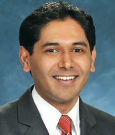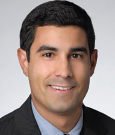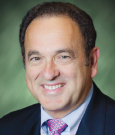The American Society for Radiation Oncology (ASTRO) has selected seven leading physician-researchers to receive a total of $675,000 in awards and grants to advance radiation oncology research. Together, the grants will support studies in cancer biology, radiation physics, translational research, outcomes/health services research, and comparative effectiveness research within radiation oncology. Recipients will be recognized at ASTRO’s 57th Annual Meeting, October 18–21, 2015, in San Antonio, Texas.
“ASTRO proudly supports these seven exceptional researchers in their efforts to help us continue to advance radiation oncology care,” said ASTRO Chair Bruce G. Haffty, MD, FASTRO. “ASTRO is committed to engaging and funding recent medical graduates in their critical research efforts that will strengthen their radiation oncology careers, and the specialty as a whole.”
Junior Faculty Career Research Training Award
The ASTRO Junior Faculty Career Research Training Award provides $100,000 annually for 2 years to two winners to support the careers of promising junior faculty, offering them the opportunity for dedicated time to work on research projects in radiation oncology, biology, physics, or outcomes/health services. Recipients are board-eligible physicians, physicists in radiation oncology, or radiobiologists who are within the first 3 years of their junior faculty appointment.
The two 2015 recipients are:
Kent William Mouw, MD, PhD, Dana-Farber Cancer Institute. Dr. Mouw will be investigating the genomic determinants of chemoradiotherapy responses in anal carcinoma. His focus is to map the genetic landscape of a large number of anal tumors to understand their biology, which could help identify appropriate therapeutic targets.
Robert Mutter, MD, Mayo Clinic. Dr. Mutter will study comprehensively characterized chemoresistant triple-negative breast cancer xenograft models established from patients with high-risk breast cancer in a preoperative chemotherapy clinical trial. He will investigate if chemoresistance predicts radioresistance, and test new DNA-repair strategies aimed at overcoming resistance.
Residents/Fellows in Radiation Oncology Research Seed Grant
The ASTRO Residents/Fellows in Radiation Oncology Research Seed Grant awards $25,000 for 1-year projects to residents and fellows who are planning to pursue careers focusing on basic science or clinical research in radiation oncology services.
The three 2015 grant recipients are:
Ariel Marciscano, MD, Johns Hopkins University. Dr. Marciscano will be researching “immuno-PET” as a noninvasive biomarker to characterize the tumor microenvironment and the implications for combining stereotactic radiotherapy with immune checkpoint blockades.
David Mayhew, MD, PhD, University of Alabama. Dr. Mayhew will evaluate the role of a noncanonical form of mRNA translation, termed internal ribosome entry site (IRES) translation, in the cellular stress response of tumors and its subsequent impact on treatment resistance in multiple breast cancer cell lines in vitro, as well as tumor xenograft in vivo.
Jennifer Shah, MD, Stanford University. Dr. Shah will investigate the feasibility of performing serial perfusion computed tomography scans in patients undergoing lung tumor stereotactic ablation body radiation therapy, with the goal of characterizing the postradiation vascular changes and how they correlate to tumor response.
Comparative Effectiveness Research Award
The ASTRO/Radiation Oncology Institute (ROI) Comparative Effectiveness Research Award provides $50,000 annually for 2 years to two researchers who will conduct comparative effectiveness research examining radiation oncology treatment. Awardees are board-certified or board-eligible physicians in radiation oncology at the time the award begins, focused on academic radiation oncology.
The two 2015 recipients are:
Timothy Zagar, MD, University of North Carolina, Chapel Hill. Dr. Zagar will be researching the comparative effectiveness of endocrine therapy and radiation therapy regimens for elderly women (> 70 years of age) with early stage, estrogen receptor–positive breast cancer.
Mark Mishra, MD, University of Maryland Medical Center. Dr. Mishra will compare patient-reported outcomes to determine if the use of intensity-modulated radiation therapy compared to three-dimensional cathode ray tube can result in a reduction in patient-relevant side effects after prostate irradiation.
For more information about ASTRO-supported grants and awards, visit www.astro.org/grants. ■









